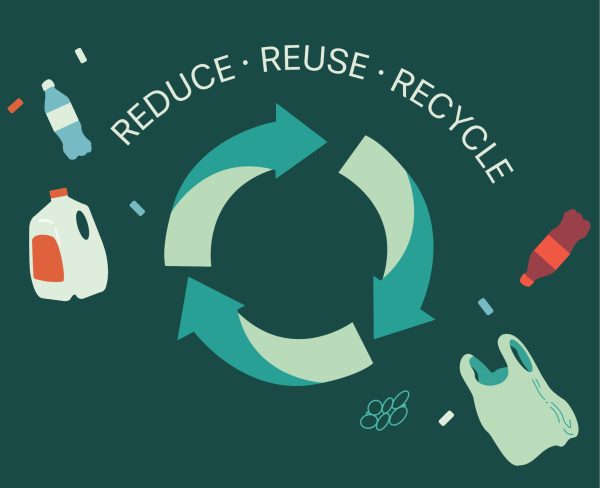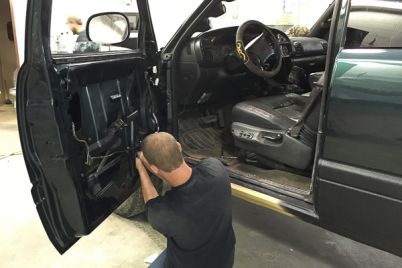
Under WCC Resource Recovery Manager Rebecca Andrews’ leadership, over 2,700 pounds have been recycled in the past nine months. Grace Faver | Wastenaw Voice
Panel discussion takes place to combat issues
Tahura Badar
Contributor
A diverse panel of experts convened on April 3 to address the urgent challenge of plastic pollution and explore pathways to more sustainable solutions.
Angela Porta, Environmental Education and Outreach Coordinator, aptly set the stage by deconstructing society’s reliance on plastics, from everyday packaging to critical medical equipment.
However, she pointed out a stark reality: less than 10% of all plastic waste is currently recycled in the US, shedding some light on the limitations of existing recycling infrastructure.
Porta emphasized that while recycling is crucial, it alone cannot solve the plastic pollution crisis.
The panel delved into the necessity of reducing unnecessary plastic usage with Porta advocating for alternatives such as reusable straws and the elimination of problematic plastics like styrofoam, which pose significant recycling challenges.
The alternatives discussed included an innovation in product packaging and a system redesign, both helping to phase out single-use plastics over time.
Proposals for policy interventions were also discussed, with a focus on extended producer responsibility laws that would shift more responsibility onto manufacturers. Such programs have the potential to enhance recycling rates by funding infrastructure and increasing demand for recycled content.
On a local level, WCC Resource Recovery Manager Rebecca Andrews provided insights into campus efforts to reduce plastic usage.
Under her leadership, over 2700 pounds of plastic have been recycled in the past nine months alone. However, she highlighted persistent challenges, including contamination from non-recyclables like coffee cups and chewing gums.
Andrews stressed the importance of proper sorting and clean recycling practices to mitigate contamination.
Victoria Chaski of Green For Life Environmental Waste Services shared her insights by emphasizing the importance of educating the public on proper recycling procedures.
Common mistakes like crushing water bottles before recycling, leaving caps on plastic bottles, and mixing different materials together that often lead to contamination were addressed, with a call for a “narrow recycling” program for difficult items.


